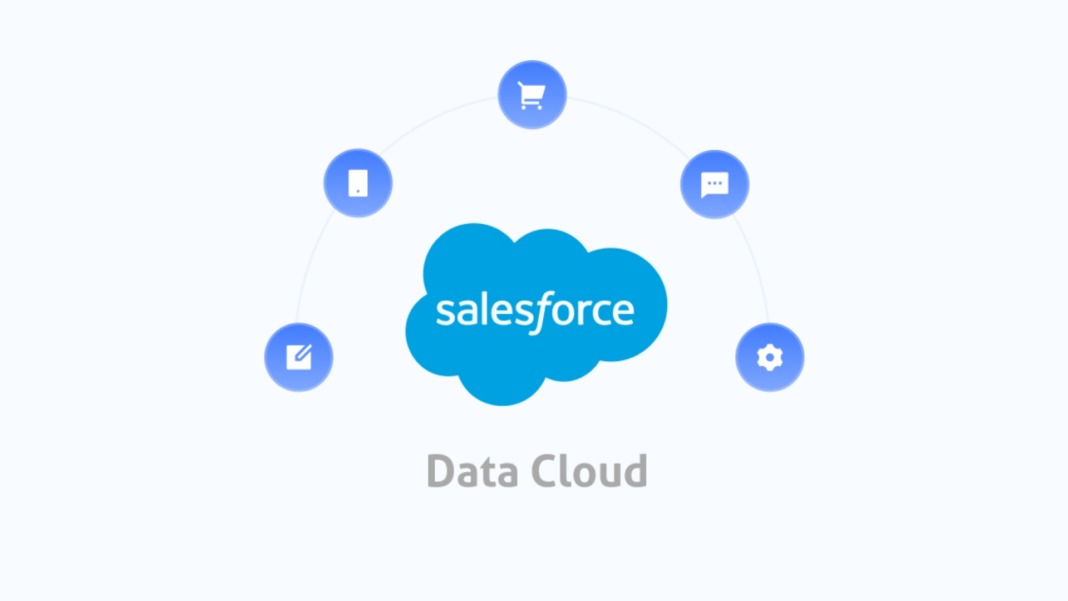Salesforce has reported impressive growth in its Data Cloud service, showing a 130% year-on-year increase in paid customers. The platform, a vital part of Salesforce’s system, processed over 2 quadrillion records per quarter, marking a 147% increase year-on-year. Data Cloud is now enabling companies to manage and analyse vast amounts of data, including audio and video content, to improve customer engagement through its integration with Agentforce.
Enhancing customer experiences with data and AI
Salesforce is continually enhancing Data Cloud’s capabilities with new features aimed at improving customer experiences. One significant update is its ability to process unstructured data, such as customer calls and webinars, enabling businesses to extract insights from previously underutilised sources and use them to personalise services.
The platform has also introduced a standardised semantic data model, ensuring that both Agentforce agents and staff can interpret and use data consistently. This provides more relevant search results and allows for real-time data activation, helping companies respond instantly to customer needs.
Data security and governance have been strengthened as well. Salesforce has added AI tagging and classification, which automatically organises and labels data, making it easier to manage. Additionally, Private Connect for Data Cloud allows secure sharing of data across public cloud environments.
Strong customer adoption and real-world examples
Several major companies, including The Adecco Group, Air India, and Aston Martin, have adopted Salesforce’s Data Cloud to unify data from various systems and provide a single source of truth for customer interactions.
Air India, for example, uses Data Cloud to manage over 550,000 service cases each month, consolidating data from loyalty programmes, reservations, and flight systems. Aston Martin uses the platform to create personalised customer experiences by integrating data across sales and support systems. The Adecco Group, a global staffing company, utilises Data Cloud to give 27,000 employees seamless access to essential information, helping them better match talent with job opportunities.
“In this new era of AI, customer data and metadata are the new gold for enterprise,” said Rahul Auradkar, EVP and GM for Data Cloud at Salesforce. “Every day, more companies are using Data Cloud to unify all their data — from customer interactions and product usage to IoT and social media data — to gain deeper customer insights across all touchpoints and channels. Because Data Cloud is the foundation of Salesforce, companies can act on data to create the most personalised and meaningful customer experiences.”
New tools to expand data handling
Salesforce has introduced new features to enhance Data Cloud’s connectivity ecosystem. Pre-built connectors for popular apps such as Square, Stripe, and Splunk are now available, allowing organisations to integrate even more data sources. MuleSoft Direct for Data Cloud enables data from platforms like Google Drive and Microsoft SharePoint to be easily incorporated into the Data Cloud.
A new sub-second real-time layer allows companies to ingest, analyse, and act on data in real-time, improving decision-making. This feature is especially valuable for AI-driven personalisation, recommendations, and automation, helping businesses stay competitive by reacting quickly to customer needs.
Salesforce has also focused on improving governance and security. AI tagging and classification tools help businesses manage large volumes of unstructured data more effectively. Policy-based governance ensures that only authorised users can access sensitive information, while Private Connect for Data Cloud allows secure sharing of data between different cloud environments.
Building a data-focused community
Salesforce has launched a new online community called Datablazers, aimed at connecting IT leaders, developers, and Data Cloud users. The community will offer a space to share insights, best practices, and trends in data management and AI, helping organisations maximise the value of their data.
Salesforce’s latest innovations reflect the growing demand for advanced data-handling capabilities, as companies increasingly rely on AI and personalised interactions to stay competitive in today’s market.





